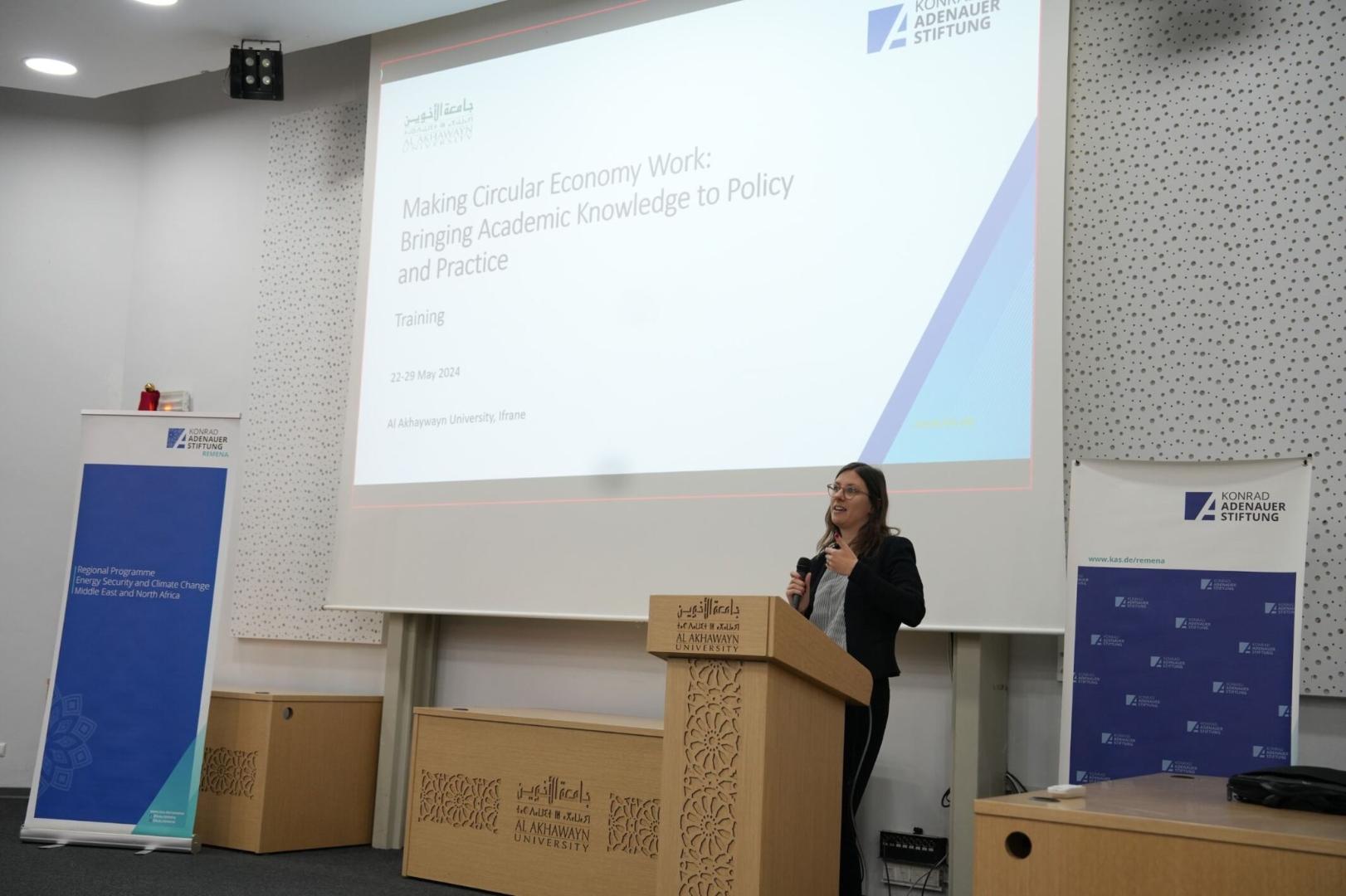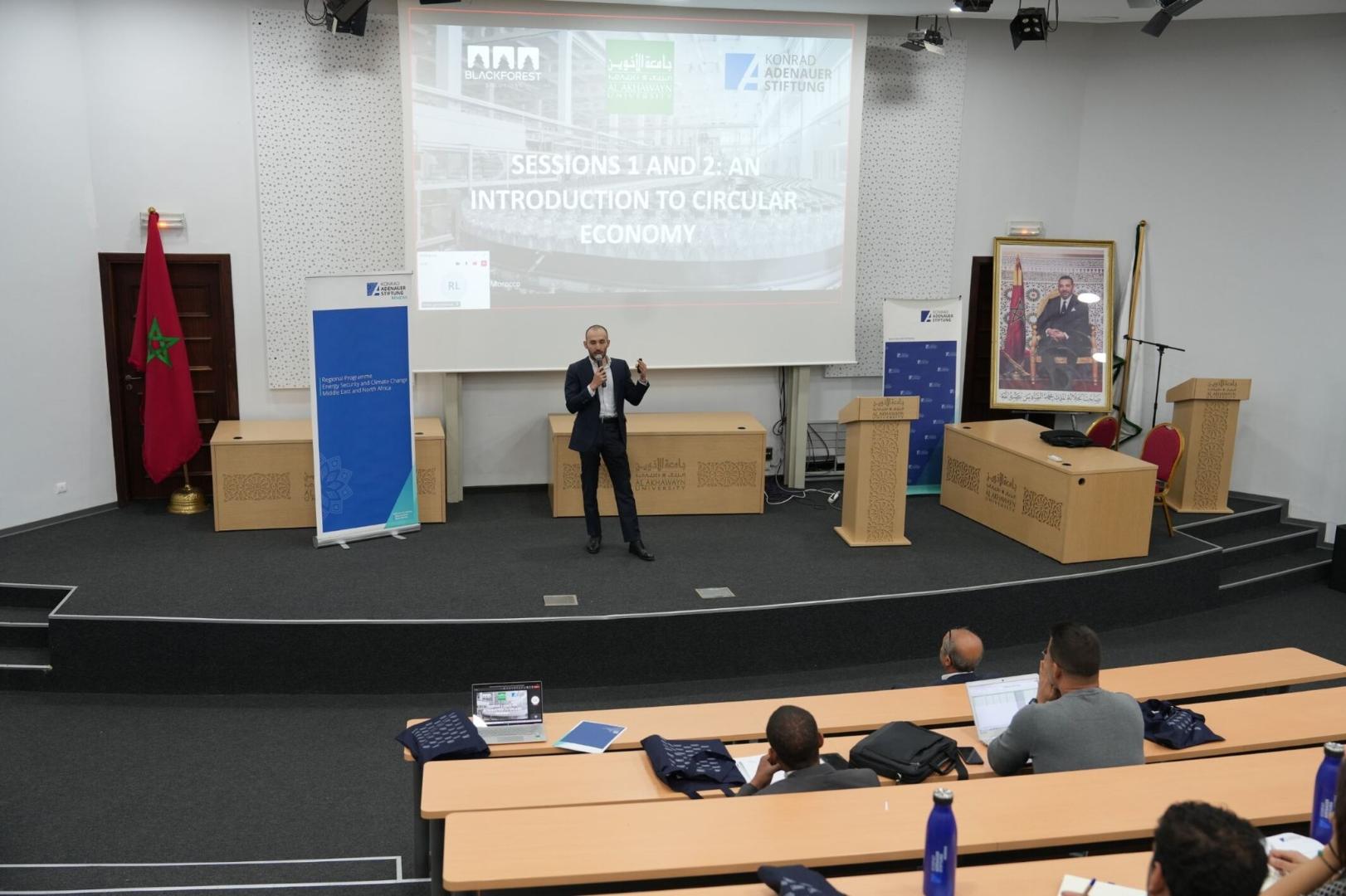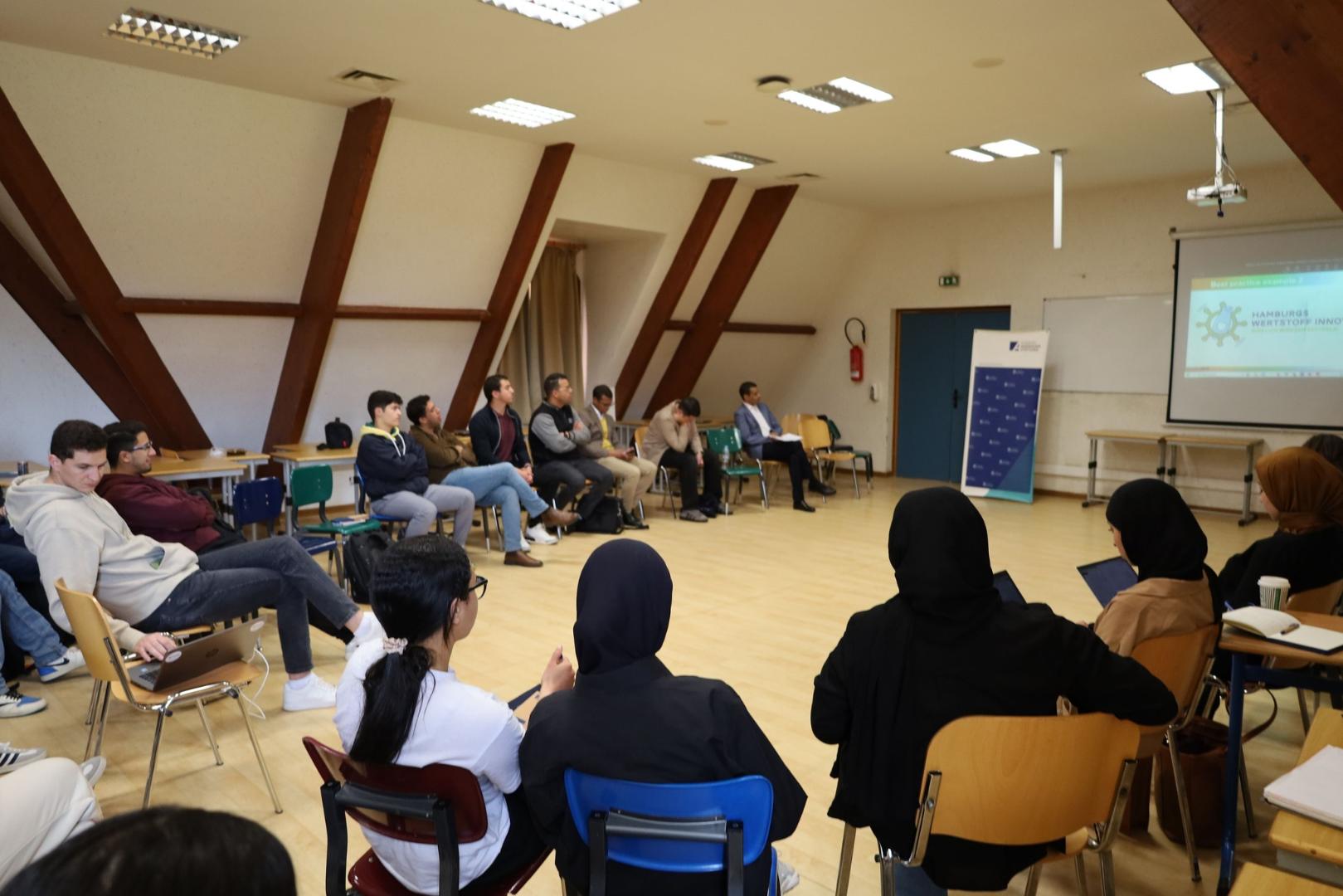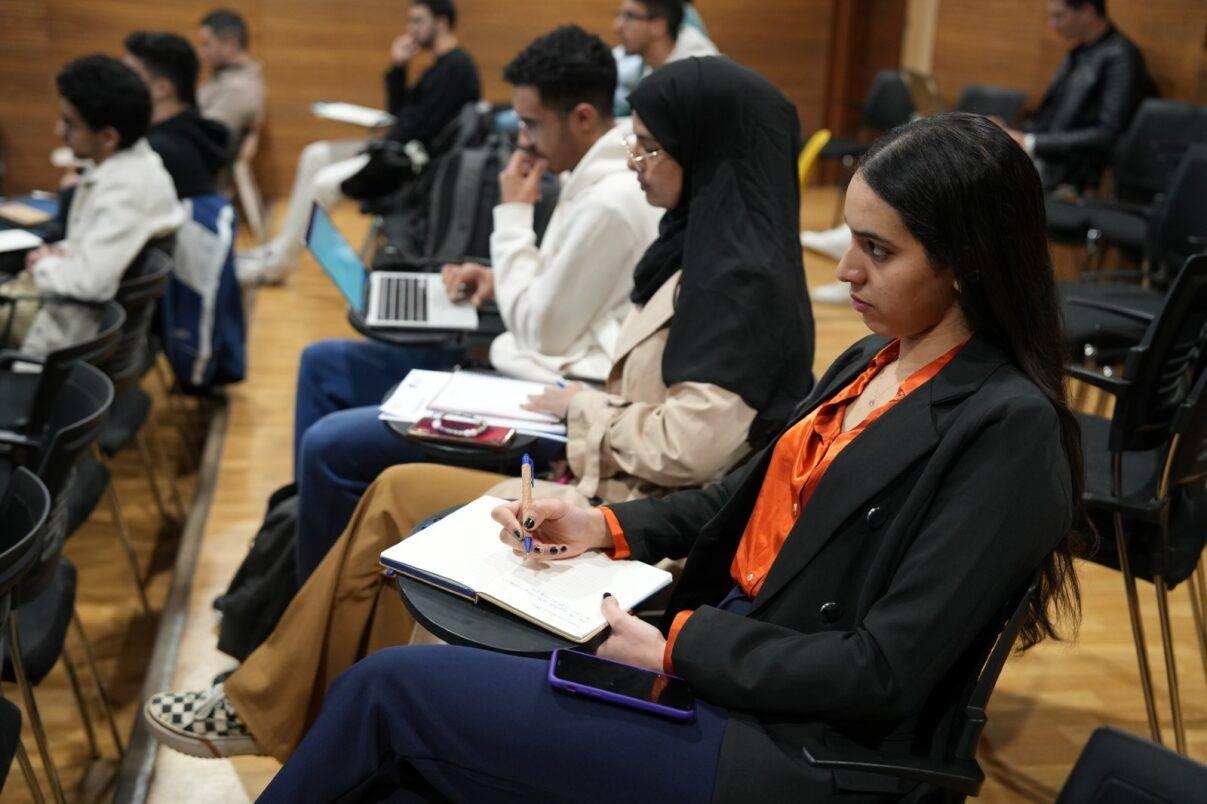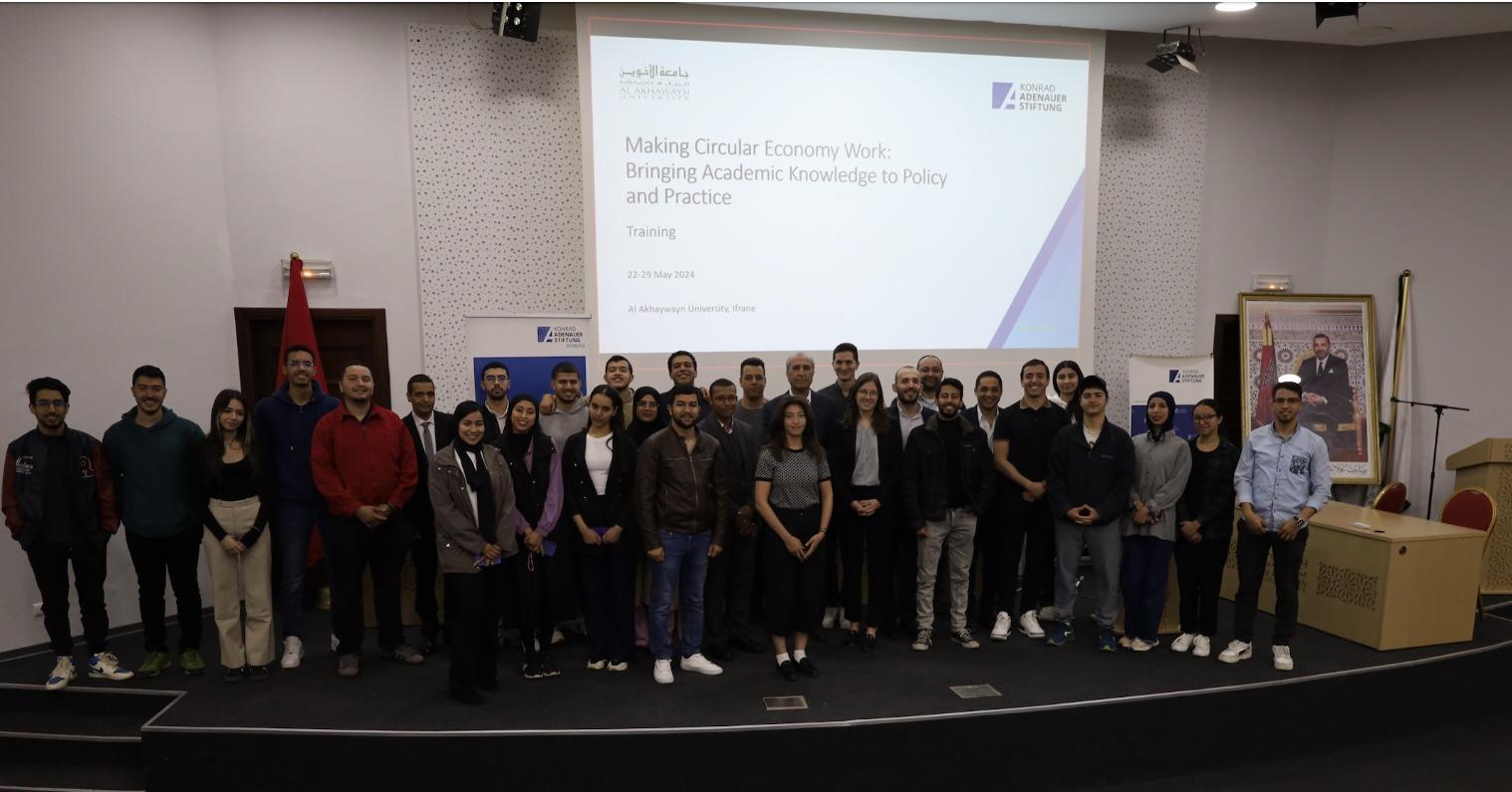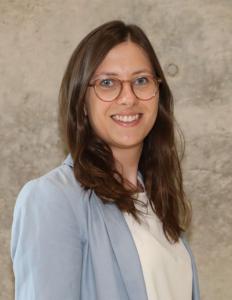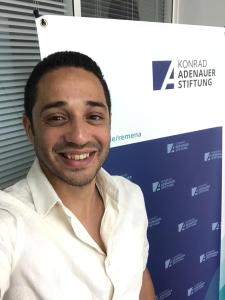Événement
Détails
The training targeted undergraduate, graduate, PhD students, and faculty members from various schools at Al Akhawayn University. The primary objectives were to provide a thorough understanding of the circular economy, develop holistic solutions for sustainability challenges, analyze Moroccan and European regulatory frameworks, explore financing mechanisms for circular economy projects, and craft effective policy papers to influence policymakers.
The program comprised multiple modules addressing key aspects of the circular economy. These modules introduced foundational principles, contrasted the circular economy with conventional linear models, and emphasized its significance for sustainability. They explored the reconstruction of value chains with circularity in mind, the role of Extended Producer Responsibility (EPR), and the importance of sustainable resource management and innovation. Participants gained insights into optimizing resources, creating new revenue streams, and understanding the importance of policies and regulations in implementing EPR.
Further modules focused on opportunities for circularity in waste management and recycling, discussing strategies to enhance circularity in waste management and the role of the private sector in advancing circular economy practices. The training also covered support policies and funding opportunities, highlighting regulatory frameworks in the MENA region and the European Union, and exploring financing options for circular economy projects.
Participants engaged in case studies conducted at Al Akhawayn University, showcasing the integration of sustainability and policy considerations into ongoing projects. These case studies provided valuable insights into the intersection of academia, research, and real-world applications.
The final module centered on translating academic knowledge and all that they had learned over the first days of the training on the circular economy into policy and practice, helping participants understand policy formation in Morocco, particularly the role of legislative institutions. They learned to connect their research and academic knowledge to real-world policymaking, developing skills in writing and communication relevant to policy papers.
Participants emerged from the program with in-depth knowledge and skills, enabling them to analyze the potential of the circular economy model for Morocco, address challenges related to its development and adaptation, and propose concrete solutions and recommendations to policymakers. The training thus successfully bridged academic knowledge and practical insights, fostering a deeper understanding of the circular economy and its implementation in Morocco and beyond.



